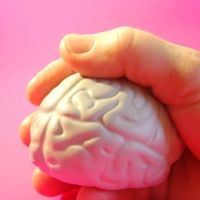How Challenging Your Beliefs Can Improve Your Work

In psychology, a cognitive bias is a mistake in reasoning, evaluating, remembering, or another cognitive process as a result of holding onto our preferences. Sometimes cognitive biases help us process information more efficiently, but cognitive biases concern ways of thinking that are not entirely rational, such as these twelve.
The confirmation bias is probably the most common cognitive bias, and, for me, the most fascinating. The gist of the confirmation bias is that once you have a certain belief, you tend to see evidence that supports that belief and to ignore, belittle, or altogether miss evidence that refutes it. Say, for example, that you're a manager who is convinced that a college degree is necessary to be a competent developer. The fact that some of the smartest people in the world never even finished high school is irrelevant to you. So when a developer in your company who doesn't have a degree flubs his assignment, your reaction might very well be “So there!” You've got all the proof you need.
In the process, you fail to consider the developers who have college degrees and perform poorly or the developers without degrees who do outstanding work. In fact, so immersed are you in the cognitive bias that you don't consider other possibilities for the degree-less developer's flub, such as an unreasonable deadline or a last-minute change in requirements. All you really have is anecdotal evidence of something you want to believe is true.
The confirmation bias works in reverse, too; if we don't want something to be true, we excel at finding evidence that rejects it while ignoring evidence that supports it. So we might attribute the successful work of degree-less developers to the support of their teammates or the relative simplicity of their projects, while disregarding the fact that these developers have done first-rate work on a multitude of projects.
Still, the confirmation bias strikes me as a natural human tendency rather than a failure. That's why it's no simple matter to avoid this bias. But if you're motivated to minimize it, make a point of allowing for the possibility that what you believe might be wrong. When you notice yourself saying, “So there!” stop and ask yourself, “Am I wrong?” or perhaps even, “How am I wrong?” Carefully guard against too quickly accepting evidence that supports your beliefs. Instead, regularly seek evidence that challenges or refutes those beliefs.
Then again, if you want to latch onto the confirmation bias and hold on tight, you have a great future in touting conspiracy theories. As noted by Michael Shermer, author of The Believing Brain: How We Construct Beliefs and Reinforce Them as Truths, conspiracy theorists excel at connecting the dots of random events into meaningful patterns and then using the confirmation bias to “prove” the case. So as a conspiracy theorist, you can handily attribute moon landings to footage shot in the Arizona desert. And as for the recent images from Pluto, nothing but clever animations. Obviously.

